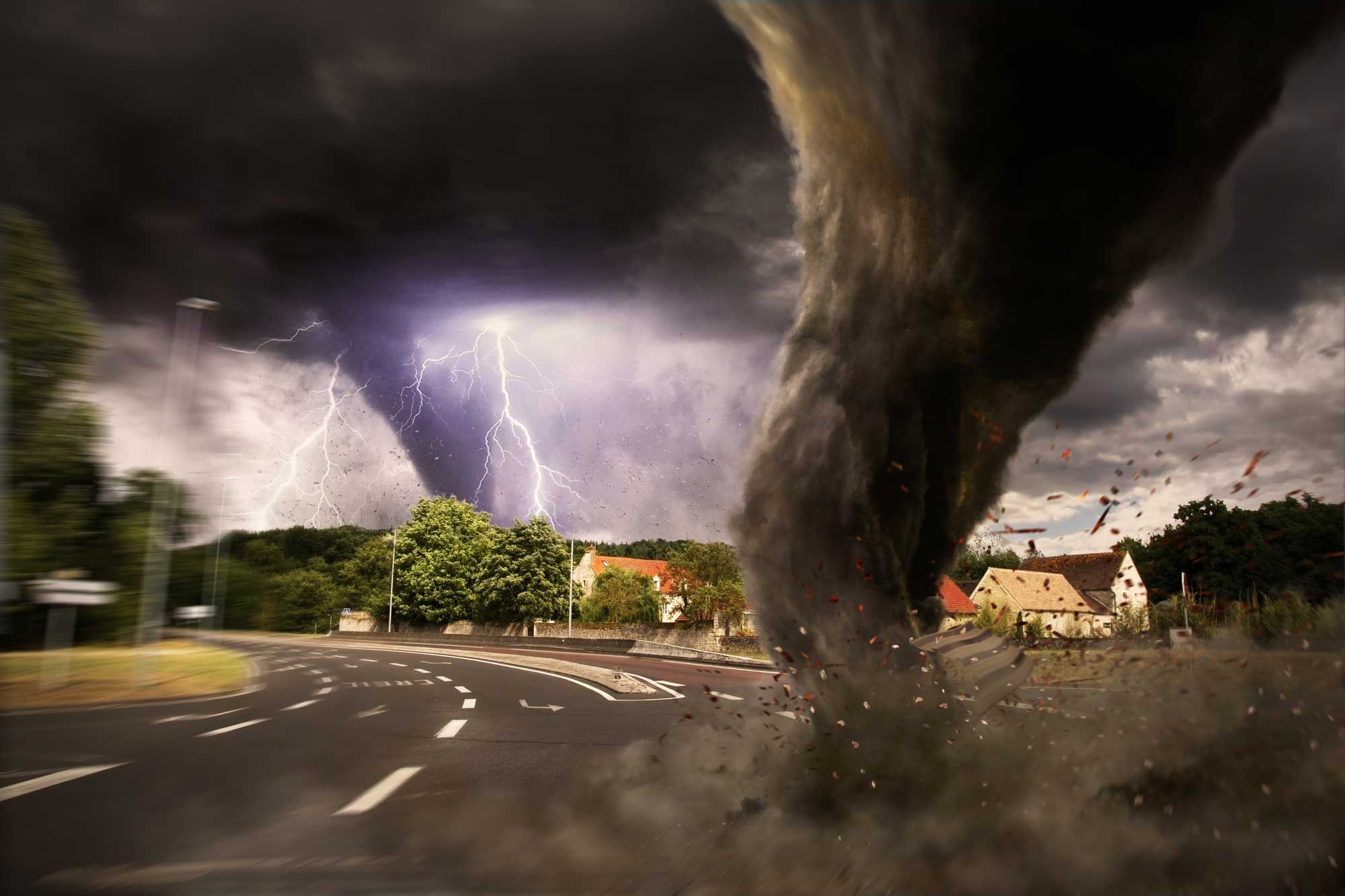
The FIXT ETF and Worldwide Natural Disasters
Natural disasters are an unfortunate reality that can strike anywhere at any time. By the end of this century, the U.S. Government predicts that damages from hurricanes, wildfires, floods, droughts, severe storms, and earthquakes could cost the U.S. Federal budget about $2 trillion each year.1 However, corporations involved with the recovery and prevention of natural disasters could see revenue increases while helping to minimize the destruction from natural disasters.
The Procure Disaster Recovery Strategy ETF (NASDAQ: FIXT) is the first exchange-traded fund to invest in a portfolio of worldwide companies that are engaged in recovery and risk reduction efforts as a result of natural disasters.
The corporations found within the FIXT ETF span numerous industries. These industries offer natural disaster recovery and prevention products and services, from home improvement companies selling flashlights and shovels to consulting and engineering firms that plan, design and build bridges, energy grids, and worldwide water systems. The constituents in the FIXT ETF encompass a range of needs created by natural disasters
- Generator Companies: A frequent result of natural disaster is the loss of power. This can create a demand for generators. After the Texas power grid shutdown, companies like Generac* saw a backlog of orders as residential and commercial properties needed another source of power.
- Home Improvement: Prior to and after a storm, home improvement companies like Home Depot,* Lowe’s,* Hornbach Holdings,* Wesfarmers Limited,* and Kingfisher* experience product demand. Consumers often rush to stores to prepare for a storm by getting plywood to cover windows, flashlights, shovels, sand, and batteries. Afterwards, consumers and businesses often need generators, pumps, and rebuilding supplies
- Engineering Services: The rebuilding and redesign of utility infrastructure, roads and bridges, buildings, and geographic conditions is critical following a major natural disaster. Seawalls, energy grids, water systems, homes, and buildings are likely to require repairs, rebuilding or new construction. Engineering companies are sought after for the design, management, and possible construction of major projects. Corporations like AECOM,* Fluor*, Wood Group,* and Tetra Tech* are just some of the contractors that are sought for this work.
- Water Services: Natural disasters can cause the loss or contamination of water. Local water suppliers often need to step up and repair water systems. In other instances, corporations like Xylem* may be called in to test, purify, and reconfigure water supplies. Droughts which have meant that lakes providing water have been drying up may require new systems to ensure that water continues to flow downstream as needed.
- Data Disaster Recovery: Municipalities, academic institutions, financial firms, and utilities rely on data systems. The destruction or inability to access these systems can put a halt to essential operations and recovery. As a result, companies that provide backup systems and/or ensure continuing operations are essential. Companies like VMWare* and NEC Corporation* fall into this category.
By 2030, the UN predicts 560 disaster events a year (1.5 each day!)2. Already the world has experienced flooding in Yellowstone National Park, Kentucky, Nigeria, and China. Wildfires have created havoc in California, Spain, France, and Hawaii. Summer droughts and heatwaves this year have burdened the United States, Europe, and China. Mexico has experienced earthquakes. Most recently, hurricanes have brought destruction to Puerto Rico, Cuba, Canada, and Florida.
Without the ability and resources of companies to help communities recover and build back safer and stronger, damage will be even more devastating. The FIXT ETF highlights the firms who step up when natural disasters occur. For more information on the Procure Disaster Recovery Strategy ETF, visit www.ProcureETFs.com.
_______________________________________________
1 https://www.cnbc.com April 4, 2022.
2 https://news.un.org April 26, 2022.
*As of October 4th, 2023, AECOM (ACM) was a 2.01% holding, Fluor (FLR) was a 2.11% holding, Generac (GNRC) was a 1.89% holding, Home Depot (HD) was a 1.91% holding, Hornbach Holdings (HBH GR) was a 1.83% holding, John Wood Group (WG/ LN) was a 1.88% holding, Kingfisher (KGF LN) was a 1.98% holding, Lowe’s (LOW) was a 1.85% holding, NEC Corporation (6701 JP) was a 2.16% holding, Tetra Tech (TTEK) was a 2.08% holding, VMWare (VMW) was a 2.16% holding, Wesfarmers Ltd (WES AU) was a 2.10% holding, and Xylem (XYL) was a 2.03% holding in the Procure Disaster Recovery Strategy ETF (NASDAQ: FIXT).
Please consider the Funds investment objectives, risks, and charges and expenses carefully before you invest. This and other important information is contained in the Fund’s summary prospectus and prospectus, which can be obtained by visiting procureetfs.com. Read carefully before you invest.
Investing involves risk. Principal loss is possible. The Fund is also subject to the following risks: Shares of any ETF are bought and sold at market price (not NAV), may trade at a discount or premium to NAV and are not individually redeemed from the funds. Brokerage commissions will reduce returns. Securities of small- and mid-capitalization companies may experience much more price volatility, greater spreads between their bid and ask prices and significantly lower trading volumes than securities issued by large, more established companies. The Fund is not actively managed so it would not take defensive positions in declining markets unless such positions are reflected in the underlying index. Please refer to the summary prospectus for a more detailed explanation of the Funds’ principal risks. It is not possible to invest in an index.
Natural Disaster/Epidemic Risk – Natural or environmental disasters, such as earthquakes, fires, floods, hurricanes, tsunamis and other severe weather-related phenomena generally, and widespread disease, including pandemics and epidemics, have been and may be highly disruptive to economies and markets, adversely impacting individual companies, sectors, industries, markets, currencies, interest and inflation rates, credit ratings, investor sentiment, and other factors affecting the value of the Fund’s investments. Foreign Investment Risks – Foreign securities are typically more volatile, harder to price, and less liquid than U.S. securities.
The Procure Disaster Recovery Strategy ETF is neither associated with, nor endorsed by, the Federal Emergency Management Agency.
The Procure Disaster Recovery Strategy ETF is distributed by Quasar Distributors LLC.